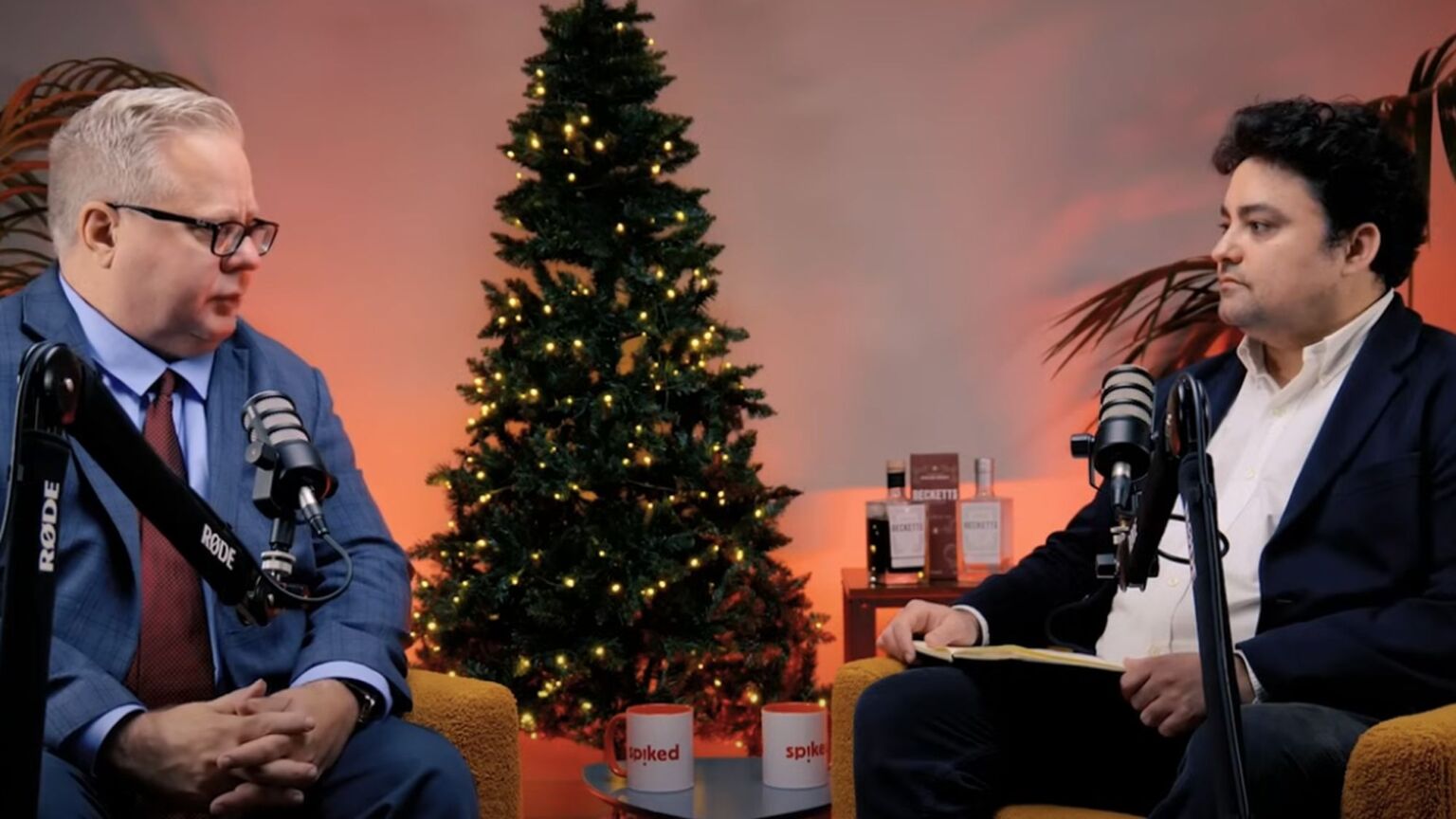Can Trump hold the MAGA coalition together?
Michael Lind on how libertarian billionaires could derail the populist project.

Want to read spiked ad-free? Become a spiked supporter.
Donald Trump was swept into the White House on a wave of working-class anger, but can he deliver for those voters? In 2016, Trump vowed to turn the Republicans into ‘a worker’s party’. His populist allies, including vice-president-elect JD Vance, have also pushed for their party to adopt a more worker-friendly agenda. Already, there are signs that under Trump, the GOP is shedding its traditional hostility to unions, to social security and to workers’ rights. Yet the old guard of Reaganites and fiscal conservatives not only remain in the party – they are also joined by a new vanguard of libertarians, including the likes of Elon Musk, who are bending Trump’s ear to demand tax cuts for the rich and a bonfire of state spending. Could these tensions in the MAGA movement derail the populist project?
This week, Michael Lind, author of Hell to Pay and The New Class War, sat down with spiked’s Fraser Myers to discuss what a second Trump term could look like and more. What follows is an edited extract from their conversation. You can watch the full video of the interview here.
Fraser Myers: The working class got behind Trump, but can he keep up his end of the bargain?
Michael Lind: There are mixed signals. If you deport illegal migrants, like Trump has promised, it will create a tighter labour market, particularly at the bottom end of the wage spectrum. That will help workers to some extent. Trump has also been reaching out to organised labour. He invited the head of the Teamsters union, Sean O’Brien, to address the Republican National Convention in July, and he appointed a pro-labour Republican, Lori Chavez-DeRemer, as labour secretary.
That said, he’s also stacking his cabinet with billionaire libertarians. If you look at the Trump coalition, it’s a combination of working-class populists and elite libertarians. And that has been the case for Republicans since the 1970s – it was true of Richard Nixon and it was true of Ronald Reagan. The populists and the libertarians have united because they both resent wokeness.
It’s concerning from a Republican point of view that there are already calls for the new Department of Government Efficiency (DOGE) to look at social security and Medicare – something that will be popular with the libertarians, but much less so with the more populist elements of the party. If that happens, the Democrats will have an opening in the 2028 mid-terms.
The same tensions exist in Europe. Nigel Farage, for example, is very populist culturally. But he has a free-market background. The Alternative for Germany (AfD) was created by anti-European Union libertarians, but it has attracted voters who are not libertarian on economics. In many cases, these parties and movements are just united by their opposition to mass immigration and the cultural left.
Myers: Does Trump need to shed some of the crankishness and conspiratorialism around his movement?
Lind: Every movement does, whether it’s the mainstream centre left or the mainstream centre right. From the 1950s to the 1990s, William F Buckley Jr spent much of his time keeping anti-Semites and racists from infiltrating mainstream conservatism. You have to have bouncers at the door.
There’s particularly a problem with what I call the ‘eugenicons’, which is just old-fashioned social Darwinism. They think that successful people are genetically superior and that the working class, since they aren’t rich, must be stupid and sub-human. But these people, like Richard Hanania, have a big following on the online right and among young Republicans. You have to have an autoimmune system as a political party that prevents crazies from getting in.
Myers: Is there more hope for the working class now than there was a year ago?
Lind: I think so. But the main shift in their favour has nothing to do with elections – it’s the rise of China, who I think we’re in a second Cold War with. That means a couple of things.
One, we’re going to see the fracturing of the world economy into military and trading blocks that are more aligned. This will reduce the ability of capitalists to move factories to countries such as China, the major geopolitical adversary of the US. That increases the bargaining power of workers, especially when combined with restrictions on immigration. In the case of service occupations, there would be tighter labour markets and fewer immigrants.
I think this would be happening regardless of who was in power, simply as a result of our security competition with China. We’re only in the early stages of it, and it’s going to last a long time.
Michel Lind was talking to Fraser Myers. Watch the full conversation here:
Who funds spiked? You do
We are funded by you. And in this era of cancel culture and advertiser boycotts, we rely on your donations more than ever. Seventy per cent of our revenue comes from our readers’ donations – the vast majority giving just £5 per month. If you make a regular donation – of £5 a month or £50 a year – you can become a and enjoy:
–Ad-free reading
–Exclusive events
–Access to our comments section
It’s the best way to keep spiked going – and growing. Thank you!









Comments
Want to join the conversation?
Only spiked supporters and patrons, who donate regularly to us, can comment on our articles.